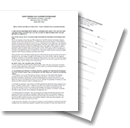Counseling or Psychotherapy for Anxiety
Counseling of psychotherapy for anxiety can help reduce the level of anxiety you are experiencing and can also help teach you techniques to manage anxiety when anxiety occurs. Some of the ways that anxiety is helped by counseling include:
- Providing the opportunity to talk through situations that have made you or continue to make you anxious.
- Developing, with the support of the psychotherapist, a plan to desensitize you to anxiety-provoking situations.
- Working with you to develop coping strategies to help you handle your anxiety when it does occur. These include breathing exercises, relaxation training, stopping negative thoughts, meditation, and assertiveness training.
- Teaching you ways to comfort yourself when you first begin to experience anxiety.
Social Anxiety or shyness can interfere with social contact and lead to fear of meeting new people and to social anxiety.
Many people have symptoms of anxiety. Anxiety is a nervous, keyed-up feeling often accompanied by fearful thoughts. It often feels as if something “bad” is about to happen even if there is no obvious reason.
Anxiety Disorders are one of the main reasons that people seek out the help of a psychologist or psychotherapist. Anxiety disorders include diagnoses such as Generalized Anxiety Disorder, Panic Disorder, or Social Phobia.
People who experience anxiety can also have bodily symptoms including shortness of breath, stomach distress, dry mouth, headaches, and muscle tension.
Significant life events can lead to anxiety such as loss of a job, a car accident, or divorce. Anxiety can occur even if these events are positive e.g. promotion at work or entering a new relationship.
Anxiety is often connected with negative thoughts, and a cycle can be set up by thinking negative or fearful thoughts and as a result, becoming anxious and then thinking more negative thoughts..
People who are anxious often try to avoid that which makes them feel anxious.
In panic attacks, the anxiety and the sensations in the body can feel life-threatening.
Sometimes people become depressed because the anxiety that they have been experiencing has brought about major life limitations such as being unable to fly or to drive on freeways.
Post-traumatic stress disorder can be a cause or a contributing factor to anxiety. People who have experienced extreme trauma may become quite anxious when they have even the slightest thought or memory about the traumatic event.
Helping Your Anxiety: Exercises to Reduce Your Anxiety
It is very difficult to feel nervous or anxious when you are relaxed. Therefore learning relaxation techniques is a key component to reducing anxiety.
Relaxation Exercises:
Breathing exercise for anxiety.
You can learn breathing/relaxation exercises that will help you relax.
One of the easiest but most powerful relaxation techniques involves taking a deep breath and then releasing the breath very slowly. You can take a deep breath and let it out to a count of four. This is quite relaxing. You can use this technique even in the presence of other people but it is best to practice it first when you are alone.
If you need help with this, you can purchase a relaxation CD at any large bookstore. The CD will teach you some additional relaxation techniques.
Visualization
In this visualization strategy, you sit quietly and imagine in your mind being someplace that you find especially relaxing. Imagine all of the sights, sounds, smells, etc. of this place while taking deep breaths and relaxing the tense parts of your body. For example 1) you can imagine that you are at the beach with the sound of the waves rolling in, the feel of the sand beneath you, some birds singing in the distance, and the warmth of the sun on your body or 2) You can imagine that you are deep in a very green forest with a stream running by you, and some squirrels chattering in the redwood trees above you.
You can use this technique whenever you are worrying: before meeting a new person, attending a meeting, etc., or any situation that typically causes you to feel nervous or anxious. It will help to practice this exercise at least once a day.
Anxiety reducing thoughts
Check the items that you would like to use to help you with your anxiety. These thoughts can calm you. Remember the ones you have chosen and use them when you are feeling anxious or worrying excessively.
_____I can let go right now and remember to relax all of my body.
_____I can act with careful thought and calmness.
_____I can remain quiet and unengaged if I need to.
_____I can remember to breathe and stay calm.
_____I can notice when my heart rate has slowed.
_____I can take deep breaths and notice when my breathing has slowed.
_____I can remember that soon this anxiety will pass.




 For a consultation or appointment call or text:
For a consultation or appointment call or text: